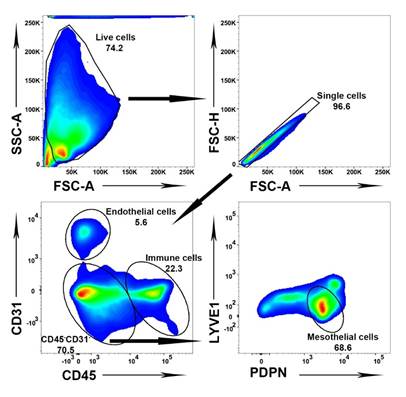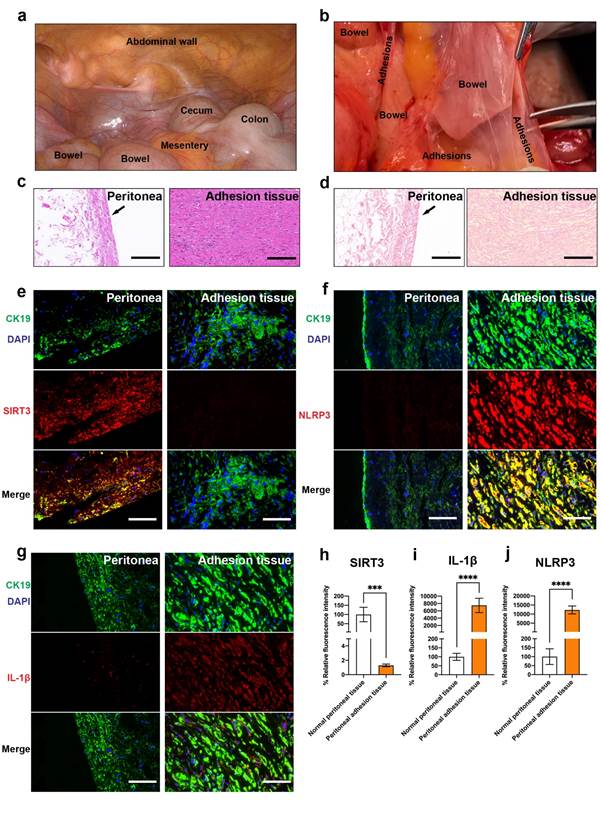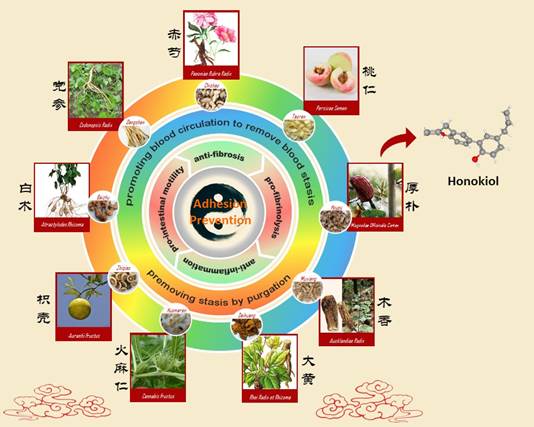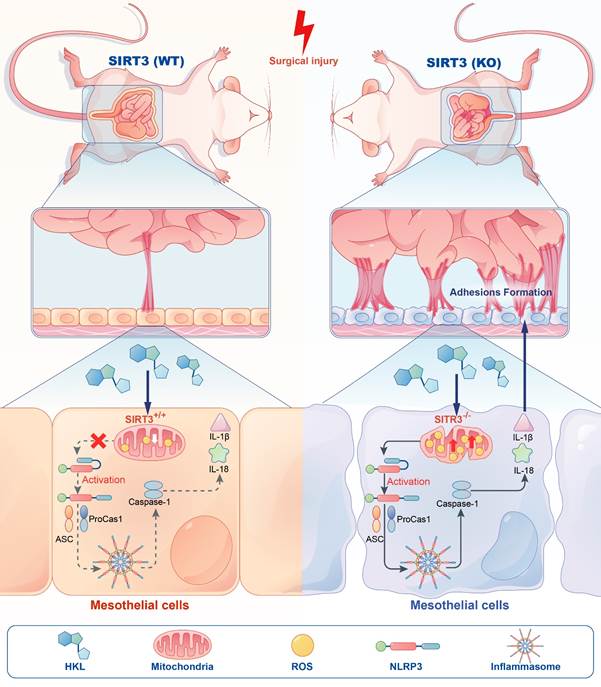In September 2022, the team led by Professor Li Xuqi from Department of General Surgery of the First Affiliated Hospital of Xi’an Jiaotong University (XJTU) published an online Article entitled Activating SIRT3 in peritoneal mesothelial cells alleviates postsurgical peritoneal adhesion formation by decreasing oxidative stress and inhibiting the NLRP3 inflammasome in Experimental & Molecular Medicine (IF=12.178), a well-known journal of Nature Publishing Group (NPG) in the field of molecular experimental medicine (Figure 1). In this study, the initiating factors of postsurgical peritoneal adhesions were analyzed and confirmed, and the pivotal role of NLRP3 inflammasome activation caused by SIRT3 inhibition in the mesothelial cells during the formation of peritoneal adhesions was clarified. The specific mechanism and effect of Honokiol, a small-molecular-weight natural compound derived from the genus Magnolias were elucidated, which can enhance the enzymatic activity of SIRT3 and inhibit the formation of peritoneal adhesions.

Professor Li Xuqi's team found that peritoneal mesothelial cell injury caused by surgical procedures is the initiating factor of peritoneal adhesions, and the expression level of SIRT3 is severely decreased in the injured mesothelial cells, and the injured mesothelial cells will recruit immune cells, vascular endothelial cells and fibroblasts to form adhesion tissues. The peritoneal mesothelial cells in adhesion tissues were sorted by flow cytometry, accounting for approximately 44.3% (39.3%-49.2%) of total cells (Figure 2). Subsequently, the team utilized human peritoneal mesothelial cells, surgical samples and SIRT3-knockdown transgenic mice to confirm that in the damaged peritoneal mesothelial cells, histone deacetylase SIRT3 was inhibited, resulting in oxidative stress and inflammatory reaction. In addition, the activity of NLRP3 inflammasome was significantly increased, leading to collagen deposition, aggravated fibrosis and adhesion formation (Figure 3).

Figure 2 Flow cytometry gating strategies for detecting mesothelial cells, immune cells
and endothelial cells in peritoneal adhesion tissues

Figure 3 The down-regulation of SIRT3 in human peritoneal adhesion tissues
Fundamental clinical evidence has been obtained in the application of traditional Chinese medicine in treating peritoneal adhesions. Department of General Surgery of our hospital has formulated a prescribed Chinese medicine of "Intestinal function recovery decoction" for several decades, which has been proven to effectively promote the recovery of intestinal function and accelerate postoperative recovery of patients in clinical practice. In the present study, the team conducted integrative analyses of the molecular pathophysiological mechanism of postsurgical peritoneal adhesions, therapeutic principle of medical treatment and prevention of postsurgical peritoneal adhesions, target prediction of traditional Chinese medicine components and network pharmacology, demonstrating that Honokiol, a small-molecular-weight compound derived from "Intestinal function recovery decoction", can suppress oxidative stress and inflammatory reaction of peritoneal mesothelial cells (Figure 4). Honokiol is one of the main bioactive components of Magnolia and a natural SIRT3 agonist, which can directly bind SIRT3 and increase the enzymatic activity of SIRT3. The team also found that Honokiol can directly act on peritoneal mesothelial cells, enhance the enzymatic activity of SIRT3, and inhibit the assembly and activation of NLRP3 inflammasome in peritoneal mesothelial cells, thereby reducing the occurrence of postsurgical peritoneal adhesions (Figure 5).

Figure 4 Honokiol is a small-molecular-weight compound from the genusMagnolia, a prescription component
of "Intestinal function recovery decoction" of our hospital.

Figure 5 SIRT3 activation in peritoneal mesothelial cells can prevent the incidence of postsurgical peritoneal
adhesions by reducing oxidative stress and inhibiting NLRP3 inflammasome.
Doctoral students Shen Tianli and Wu Yunhua from Department of General Surgery are the co-first authors. Research Professor Li Xuqi from Department of General Surgery is the corresponding author. Our hospital is the first and corresponding affiliation of this article. This study is supported by the Surface Project of National Natural Science Foundation of China and Integrative Medicine Research and Development Project of our hospital.
Article link:https://www.nature.com/articles/s12276-022-00848-3